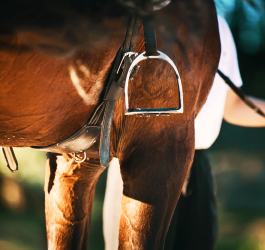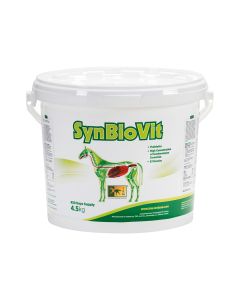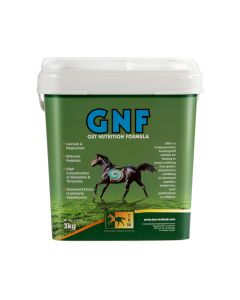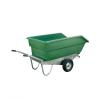
A horse's digestive tract is a large and relatively complex system. Not only is it where food is digested and absorbed, but it also has a significant impact on the horse’s overall health and well-being.
We all know the saying ‘’you are what you eat’’, and in many cases, it is very true! However, you could be feeding your horse an excellent diet with all the right macro and micronutrients (and paying a lot of money to do so), but if they have poor gut health they may not be benefiting from it.
When we talk about ‘gut health’ what we are referring to is the digestive system and the horse’s ability to absorb nutrients.
The process of digestion first starts in the mouth. Horses will chew and break down their food with the help of digestive enzymes in saliva. The pre-digestion of proteins and fats then occurs in the stomach as stomach acids break down food, to get ready to be absorbed in the small intestine.
Fun Fact: A horse’s stomach is about the size of a rugby ball and only about 10% of the horse’s digestive tract.
The partially digested food then passes from the stomach to the small intestine which is 60-70 feet long! Here is where most of the breakdown and absorption of food occurs as enzymes work to absorb nutrients into the bloodstream.
Then finally, in the hindgut, fibrous material will ferment for 2-3 days as the microbial population living in the gut breaks down fibre. This provides a source of slow-release energy, and it is this process that enables herbivores to thrive on a fibre-based diet. It is also why looking after the ‘good’ bacteria is so important for good gut health.
Digestive issues to watch out for:
Ulcers
Gastric ulcers are the most common equine digestive issue and can be triggered by a variety of causes from diet to lifestyle. These stomach ulcers can be painful and seriously affect the overall health of your horse.
Signs of ulceration can include:
-Signs of discomfort especially in the mid-section,
-Clearly favours one side or won’t bend to one side
-They lie down frequently
-Loss of appetite.
If your horse shows any of these signs you should get in touch with your veterinarian.
Too much starch
Diets too rich in starch will cause problems with digestion as the starch will be absorbed too quickly in the small intestine and cause problems in the hindgut.
When starch reaches the hindgut, starch digesting bacteria produce lactic acid. An increase in acidity can then kill the beneficial, fibre digesting bacteria. upsetting the balance of microorganisms in the hindgut can lead to issues such as lethargy, irritability, girthiness, difficulty bending or collecting, and general discomfort.
Seeds or grains of cereal plants tend to be higher in starch. Oats, barley, wheat and maize are cereal grains that are commonly used in horse feeds, and they contain high levels of starch.
Conclusion
The gut health of our equines plays such a significant role in determining how healthy or unhealthy they will be.
For horses with poor gut health, even if they are getting a balanced diet they may not be absorbing the nutrients they need to perform optimally.
If a horse's nutritional needs are not being met it will not only will their performance suffer, but it will also lower their immune system making them more susceptible to other ailments.
When this is the case, supplements that are specifically designed to support gut health can be used to help the horse get more out of its feed which will most likely improve their general wellbeing.
How to Boost Gut Health
SynBioVit- A complimentary feedstuff containing live yeast Saccharomyces Cerevisiae, Prebiotics and B-Vitamins. Saccharomyces Cerevisiae increases nutrient digestibility by enhancing the activity of fibre digesting bacteria in the hindgut, resulting in increased fibre digestion of forage and more efficient use of the vitamins and minerals from the diet. Prebiotics act as a food substrate for beneficial microbial populations in the hindgut. B-Vitamins are key nutrients involved in metabolism and energy release. When horses suffer gut disturbances their low hindgut bacterial population may affect the ability of the horse to synthesize B-Vitamins.
When SynBioVit can be used as a nutritional adjunct:
-During times of stress such as travelling, competing, and illness
- After antibiotic treatment, when hindgut bacterial populations have been diminished
- If horses have diarrhoea or a parasitic infection
- Young horses with incomplete bacterial populations
For maintenance of a healthy digestive and gut function, SynBioVit should be added to the normal feed ration.
GNF- A pelleted feedstuff to add to the normal feed ration to maintain digestive function.
GNF supplies a unique formulation of probiotics, essential amino acids, seaweed extract and specific minerals necessary to aid in the recovery and maintenance of a healthy digestive tract. The seaweed extract creates a floating raft of gel which helps to protect the non-glandular part of the stomach from acid. and the high concentrations of prebiotics act as a feed source for beneficial bacteria. The amino acid glutamine helps maintain epithelial cells in the lining of the gut wall and the amino acid threonine can aid intestinal mucin synthases. It also contains calcium and magnesium which are alkaline which helps regulate intestinal PH.
When GNF can be used as a nutritional adjunct:
-To maintain digestive function
-If horses have depressed appetite, weight loss or are experiencing stable vices such as cribbing or windsucking.
-To support the recovery from stomach ulcers*
*We do not claim that GNF will cure stomach ulcers. Advice should always be sought from your vet if you suspect ulceration.
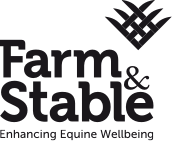

 Forgotten your password?
Forgotten your password?  Free Delivery on all orders over £95+VAT
Free Delivery on all orders over £95+VAT
